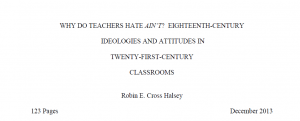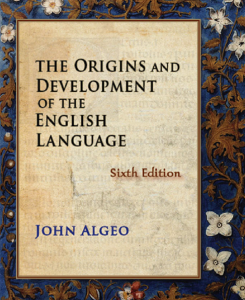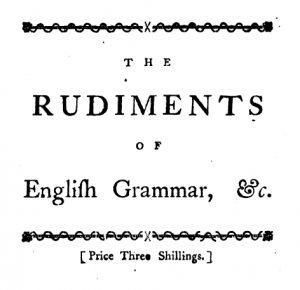PDF #73 – A P R Howatt and Richard Smith – The History of Teaching English as a Foreign Language from a British and European Perspective

This article offers an overview of historical developments in EFL (English as a Foreign Language) teaching methodology over the last 250 years. Being based on periods rather than methods, it is intended as an alternative kind of account to the ‘method mythologies’ which have tended to dominate professional thinking for the last thirty years.
Since the publication of Howatt (1984) thirty years ago there has only been a limited amount of original research into the history of English language teaching for speakers of other languages. This contrasts strongly with work in relation to French, which has burgeoned over the last twenty-five years (see Besse, this issue). The historical research studies on The History of Teaching English as a Foreign Language which have been carried out since 1984 go some way towards fulfilling Stern’s (1983: 83) call for ‘studies of particular aspects’, although much remains to be investigated. Some important monographs have been published about English teaching in particular countries, largely in languages other than English; note especially the work published in German by Klippel (1994); Lehberger (1986; 1990); and
Macht (1986; 1987; 1990). Indeed, since 2000 there has been a marked increase in substantial doctoral work on the history of English teaching in Germany (Doff, 2002; 2008; Franz, 2005; Kolb, 2013; Ruisz, 2014), mainly under the supervision of Friederike Klippel at Ludwig Maximilian University in Munich. In Japan, no fewer than two academic societies have existed in recent times for the history of English studies there: Nihon eigakushi gakkai (The Historical Society of English Studies in Japan) and Nihon eigokyoikushi gakkai (The Historical Society of English Teaching in Japan).
However, in the UK, just three doctoral theses over the last thirty years — to our knowledge — have adopted a fully historical approach to aspects of English language teaching (Evans, 2003; Smith, 2005a; Hunter, 2009). There has been additional foundational work by Howatt & Smith (2000; 2002) and by Smith (1999; 2003; 2005b), and the development of the ‘ELT Archive’ at the University of Warwick (<http://www.warwick.ac.uk/elt_archive>) has begun to raise consciousness of needs for historical research within the wider profession. Finally, monographs on the history of two specialist areas — EFL learner dictionaries (Cowie, 1999) and English language testing (Spolsky, 1995; Weir et al., 2013) — deserve to be highlighted, as does a recent comprehensive history of the teaching of refugees and immigrants in Britain (Rosenberg, 2007).
I am discussing some of the topics of this site in my Youtube channel.






